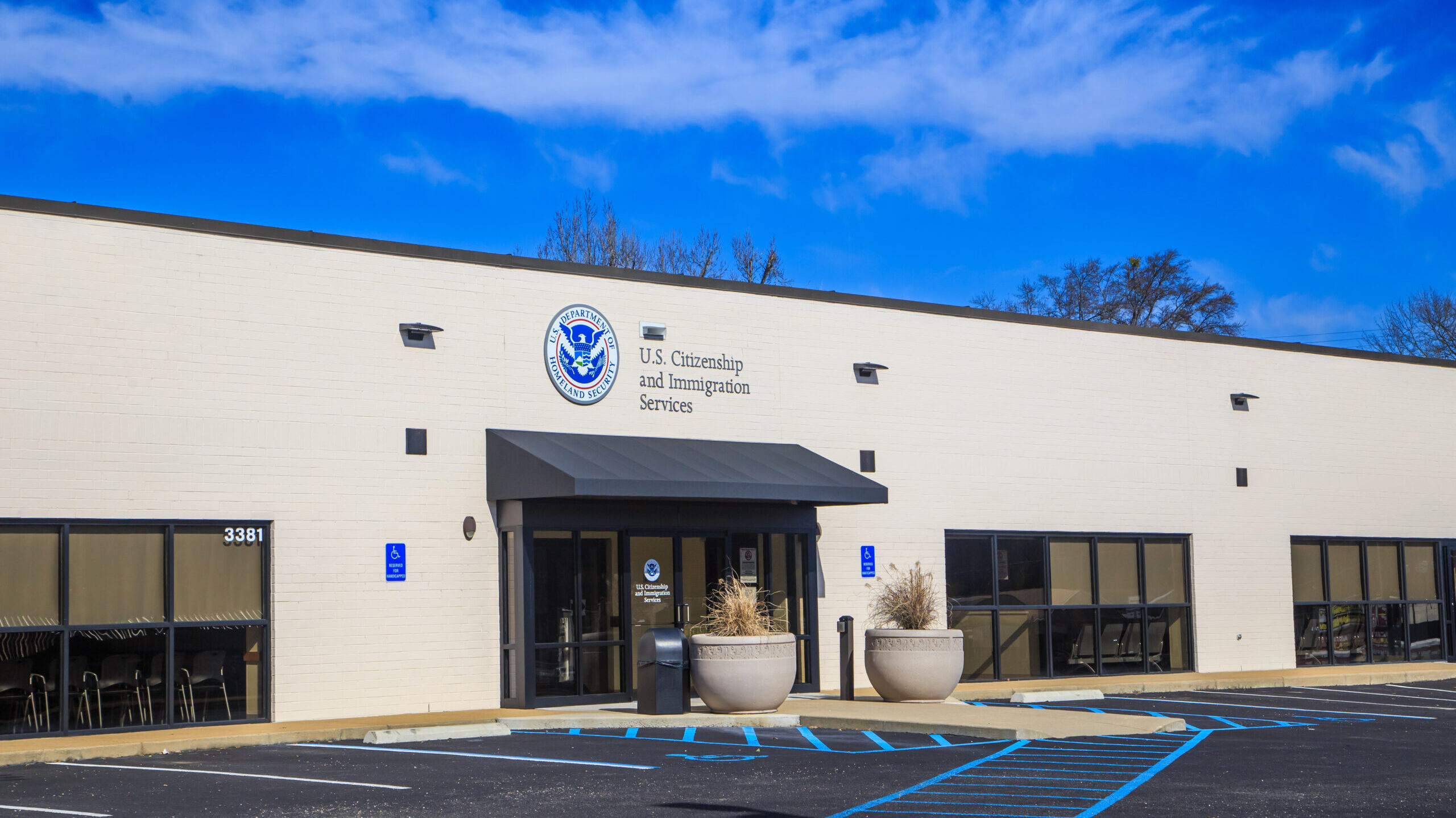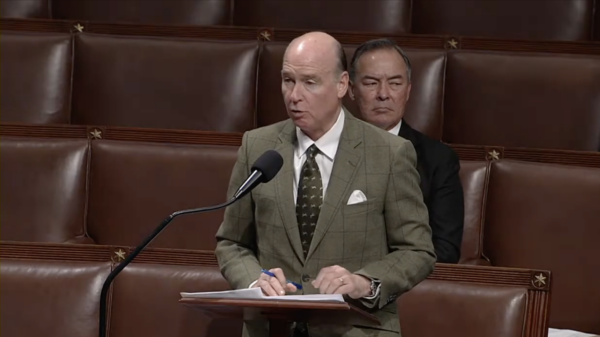With the Trump administration aiming to widely restructure and expedite the deportation process of undocumented immigrants, immigration detentions have been spotted across Alabama.
During the first week of June, the Mobile County Sheriff alongside Homeland Security and the FBI, detained 28 undocumented immigrants during a traffic stop in Mobile County. Shortly after, at least five undocumented construction workers were detained at a worksite in Montgomery.
Another workplace raid conducted by Immigrations and Customs Enforcement in Gulf Shores on June 24 led to the detention of 36 undocumented immigrants.
Homeland Security Investigations Agent Steven Shrank said the “operation sends a strong message to those who exploit illegal labor for profit, displacing American workers.”
Two companies in south Alabama have also received federal contracts in June related to expanding the capacity of immigration detention facilities.
Data from Syracuse University shows that, as of June 15, 56,397 immigrants were being held in ICE detention across the U.S., as compared to 38,525 a year before.
71.7 percent of detained immigrants are cited as having no known criminal record.
This nationwide uptick in immigration arrests comes as the Trump administration has proposed and enacted sweeping changes to the process of detaining and removing undocumented immigrants from the country.
In May, Trump aide Stephen Miller and Homeland Security Secretary Kristi Noem demanded immigration agents seek to arrest 3,000 people a day.
Trump, as well as Miller, have also publicly spoken against undocumented immigrants’ rights to legal due process and called for the expedited removal of those in the country illegally.
Last week, U.S. Supreme Court rulings respectively allowed the Trump administration to continue deporting migrants to countries other than their own and limited nationwide injunctions from lower courts, responding to a Trump administration executive order seeking to deny birthright citizenship to those whose parents are living in the U.S. illegally or temporarily.
Danny Upton, an Alabama immigration attorney with law firm Harris and Associates, told APR, despite not personally seeing a dramatic increase in immigration detentions in recent months, he felt the state’s legal climate has become more hostile toward immigrants since Trump took office.
“What we are seeing is just a lot of the just sort of efforts to make life more difficult for immigrants,” Upton said.
Upton pointed to a client he represented who the court issued an ankle monitor, despite the fact that the client has resided in the U.S. for 30 years, has been married to a U.S. citizen and has two children who are citizens and in college.
“I think it can only be explained in terms of who’s making money off of it,” he said. “They pay these contractors to, you know, do all the monitoring of the ankle monitors and stuff whenever people are detained.”
Upton spoke against recent nationwide developments, such as expedited deportations and migrants being sent to nations other than their country of origin.
“Certainly, what’s going on at a national level really boggles the mind and scandalizes, you know, the conscience and, it’s just utterly lawless,” he said.
“Removal from the country is when an alien, a foreign national, is sent back to his country of origin, and at which point he’s free there in his country. But that’s not what’s happening,” Upton continued. “They’re sending people to third countries and then subjecting them to indefinite imprisonment, even though they have never been convicted of, charged with nor even accused of any sort of crime.”
When asked his opinion regarding the idea that due process is a right only reserved for U.S. citizens, Upton expressed concern that such a shift in legal precedent could negatively impact the due process rights of citizens as well.
“If it weren’t so dangerous, it would be laughably absurd as it is. It’s very insidious and dangerous,” he said. “If we don’t have due process, then then who’s to say who is an immigrant or who has committed crimes, or who is a citizen, it is only through due process that we’re able to, you know, ascertain who fits into what category.”
He emphasized, however, the American legal system being inhospitable toward immigrants is not a phenomenon that began with Trump’s presidency, citing that, unlike other civil proceeding, during removal proceedings migrants are only given a right to counsel at their own expense.
“There would be a public defender there that could advise you about your traffic ticket or maybe your first DUI or whatever, just to ensure that your rights were protected,” Upton said. “But if you were a five-year-old child who is put into removal proceedings and you don’t have the means of hiring your own attorney, then that five-year-old child is required to defend himself in removal proceedings against an ICE attorney paid by the almost unlimited resources of the U.S. federal government.”
Upton said he felt many Americans have come to resent undocumented immigrants because of a desire to see those who’ve broken the law punished, as well as a need for an easy outlet for frustrations in their own lives.
“It just offends their moral sensibilities that somebody might, you know, unfairly cut ahead of somebody else, right?” he said.
“People are angry, and people, want to see immigrants removed because they’ve been sold a load of goods,” he said. “I hate to make, you know, comparisons to the Nazis, but you know, authoritarians must always have some sort of scapegoat in order to project the blame for the regime’s failings.”
Upton said despite public outrage directed toward immigrant communities, the current administration’s proposed mass deportation would have dramatic negative effects on the U.S. economy.
He cited that over the last two decades it’s been projected 11 to 12 million undocumented people reside in the U.S.
“Imagine if we removed 12 million, not just workers, but also consumers, right?” he said. “That’s 12 million customers to a lot of businesses that are suddenly removed from the marketplace. That you know, that is people who rent properties, people who are buying.”
Hunter Garnett of Garnett Patterson Injury Lawyers similarly expressed concerns regarding the long-term legal and economic impacts of the Trump administration’s immigration policies.
“Historically, immigrants have had comparable constitutional rights and do and rights to due process as American citizens. But this year, that has changed,” he said.
Garnett said he’s seen both an increase in ICE detentions and the expedited removal of undocumented immigrants arrested for minor charges.
“There’s dozens of ICE holds at any given time. And before this year, there would have just been a handful, and that handful would have just been for violent crimes,” Garnett said. “Now pretty much we’ve got ICE holds on anything, you know; basic traffic violations, DUIs, domestic issue, you know, misdemeanors and everything in between.”
“It used to be that if you were arrested for basically any misdemeanor, and you didn’t have legal status, you were treated roughly the same way in our judicial system as a citizen would have been. You get bond, you get out, you go back to work, you live your normal life,” he continued. “Now what happens is, you get arrested for DUI, you post your bond, they put an ICE hold on you—I believe it’s 72 hours.”
Garnett’s firm holds monthly events marketed toward Madison County’s immigrant communities allowing attendees to fill out paperwork necessary for legal representation should they be detained.
“It’s catered toward Spanish speakers to help them get their household paperwork in order,” he said. “It’s actually paperwork that anybody should have. It’s a power of attorney and basically directives for if somebody is incapacitated or detained.”
“We don’t ask for anyone’s status when they come by. They could be a citizen. A lot of them speak English. They could be a permanent resident, or they can be undocumented,” Garnett said. “And obviously, given what kind of the current political climate is, you know, a lot of even legal immigrants feel uneasy and vulnerable and want to have their paperwork in order.”
In May, an immigration raid in Foley led to the detention of a native citizen, after ICE agents denied the validity of his REAL ID identification.
Garnett expressed concern regarding the long-term impact and specifics of the Trump administration’s efforts to restructure birth right citizenship, saying it’s currently unclear who the executive order will affect, but the decision will likely “have huge ramifications.”
“We don’t really know, like, what it’s going to look like, if it’s going to be just a wide sweeping every child that’s born from here forward doesn’t get citizenship unless they their parents have legal status, permanent legal status,” he said. “Or, is it going to be we’re going to retroactively take away citizenship from, you know, people that commit serious crimes and we find out their parents didn’t have permanent legal status?”
While Garnett said he understands the perspective of many Americans that undocumented people convicted of crimes should be deported, he said he believes the growing prevalence of workplace raids will turn more Alabamians against the Trump administration’s immigration policies and likely stunt the economy both in Alabama and nationwide.
“Where you get into something that’s a little more bipartisan is these workplace raids,” he said. “I think, you know, construction workers, hospitality workers, farm workers, are being picked up dozens at a time, and they don’t have any criminal history, and they are just working, and they get caught up in the system.”
“If those people are deported or stop working or self deport, I think it’s going to have catastrophic economic impacts on north Alabama, specifically the labor shortage that we have in the Tennessee Valley, I think is the biggest problem that we have, especially for small business owners,” he continued.
Garnett also pointed to a recent projection from the Social Security Board of Trustees indicating Social Security is on track to deplete its trust funds by 2034, after which the program will be forced to cut monthly benefits by roughly 20 percent.
Garnett said “pretty much all” undocumented immigrants are filing a 1099 or W2 tax form and pay into Social Security without the ability to withdraw from it.
“If we deport 10 million workers who are paying in Social Security, not getting anything out, we, instead of us to be an insolvent in 2033; we’re gonna be insolvent in 2030 or sooner,” he said. “That’s going to be a catastrophe.”



















































